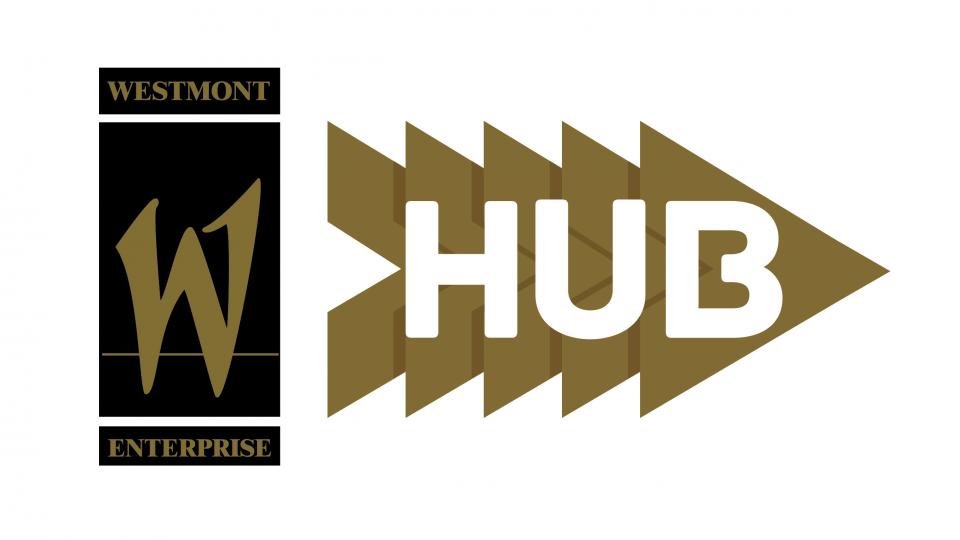
Venture Making
Idea today, entrepreneur tomorrow
Idea today, entrepreneur tomorrow
Westmont Enterprise Hub helps pre start ups grow. From the flicker of something smart, through proof of concept, and on to the market.
Student Entrepreneurs
Student entrepreneurs
Venture making has been designed by the Hub as an ideation tool for student entrepreneurs who are working through the ideation phase of their business concept. It is a totally flexible process that centres its focus on the business model canvass. It works through five key concepts of business modelling and testing with its endgame resulting in an innovation pitch, a summary presentation of the core elements that summarise the research and development undertaken during the ideation.
Venture making embeds the idea of opportunity analysis and early-stage decision-making that students can expect to encounter as young entrepreneurs. It can also help them make those early-stage choices in their future career opportunities when determining their future selves.
Venture making is a totally flexible ideation. It can be delivered in a day, to begin and foster an experience in young entrepreneurs; or it can be phased through a series of months for the student group wishing to understand and add value to their enterprise thinking or commercial value of their vocational degree – we are the career university and entrepreneurship is a career choice.
Community of innovators
The student entrepreneur will be working on their ideation with other like-minded people. The Hub is home to local businesses that use the co-working space to run their enterprises. The Hub has a Membership of some 200 local business owners who use the space as an ad-hoc drop-in resource. Members and co-working space users create a dynamic community of innovators all of whom are happy to share their knowledge and expertise.
Three is the magic number
Three is the magic number
There is an underpinning part of the ideation that helps to create the core business canvass. It reflects on founders, product revenue, and markets segments. It is a rule of thumb but a good indicator on business viability and scale. It is something future Hub exits need to demonstrate to investors, flexibility and bandwidth.
The three founders. Which Founder are you?
- The visionary is the one who sees into the future. They articulate that dream and convince the customers, market, and investors.
- The hustler is the person who does stuff and the taskmaster of the business. They set pace and project manage. What they don’t know they’ll learn they’ll put in the hours to sort stuff out. They are defined by attitude.
- The hacker it is their entire job to ensure that the required tech and hardware is up to scratch.
Whatever your business is, you need a Founder who lives and breathes the product.
Five key concepts of venture making
Venture making relies on the continued evolution and design of the business model canvass. When this is being built, the founders must review each of their models that complete the canvass with these concepts.
-
Desirability
Desirability who is your customer, what will they buy, how will they buy it, when will they buy it, where will they buy it and what is their perceived value of the product? Your product must fulfill their expectation and ensure the UX is a perfect fit. If it does not it is not desirable.
-
Viability
Viability uses the desirability matrix as a key guide to volume sales. Is this product a volume, scalable product? If not, it is not viable.
-
Feasibility
Feasibility demonstrates that the founders have understood the desirability and have a scalable, viable business offer. The commercial financial summary for 3-5 years must demonstrate breakeven on or around year 1.5 of market entry.
-
Adaptability
Adaptability proves that the business understands the competition, the threats, and the weaknesses and can pivot if there is a what if situation.
-
Sustainability
Sustainability is a key element of any startup in today’s commercial environment. Do you understand how the sustainable development goals impact every aspect of our lives? Have you measured your business, your products, your services, your processes, your resourcing, and your customers against them?
The Pitch
The pitch
Venture making completes with a pitch, similar to BBC's Dragons' Den. The founders must prove the business model canvass and its cross-referenced proof provided by the five key concepts.
This requires no more than 7 presentation slides:
-
Who we are?
-
What the problem is?
-
How do we fix the problem?
-
What the desire and viability is?
-
The financial analysis
-
Competitor analysis and 'what if'
-
Sustainability
The founders will tell their stories using pictures and few words, using their presentation skills to explain the detail and not the screen.
The founders must be able to explain their business in a paragraph – the elevator pitch – before they can develop the pitch fully. They must know their business and be able to answer any questions about it during the pitch.
What next?
What next?
Venture making is the process of ideation for students. It can be as long or as short as it needs to be. The next step is to decide on the future you. If you as founders have proven, through your pitch, that there is something tangible in your innovation; you will be invited to pitch to the University and join the incubation programme.
The step from venture making pitch to a pitch panel can be quite quick, it depends on how much more work your ideation needs. If you as founders decide that now is not the right time for you to begin your start up journey, then that is good too. What you have achieved in venture making is the successful interrogation of an idea. You have succeeded in identifying needs and if there is a business to build. You have taken decisions about the future you.
Contact us
This information is brought to you by the Westmont Enterprise Hub, an incubator for ideas and startups at the University of West London.
We regularly host events with a focus on business, innovation and networking that are open to the business community.






